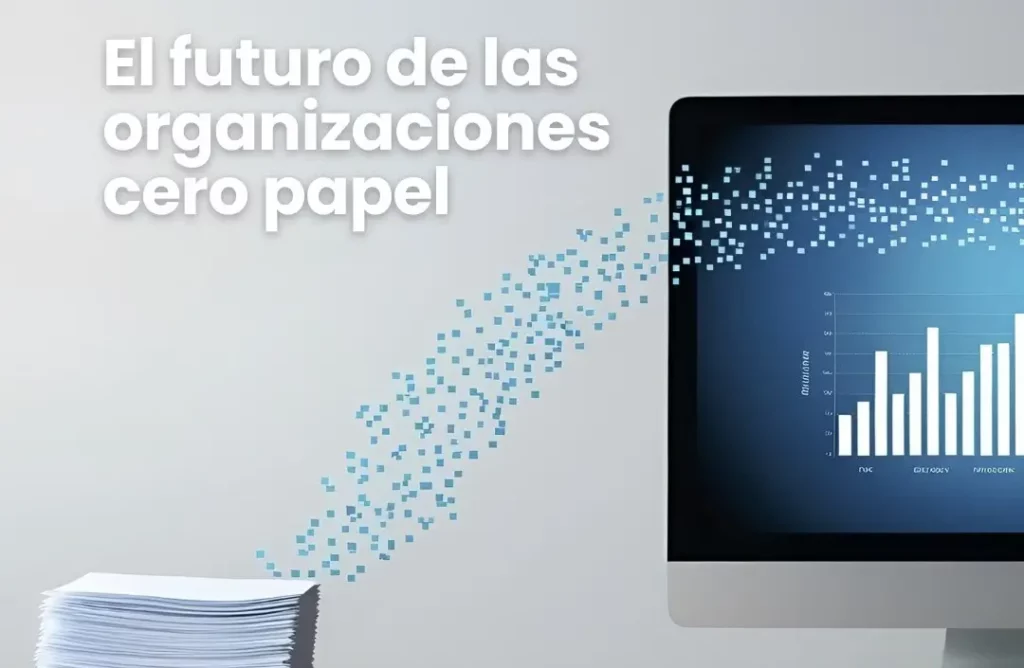
About International Recycling Day and the transition to zero paper: Digitalization promotes water and forest protection.
Rodrigo Mortara, general manager of Despapeliza, offers some advice.
Paper production requires a high consumption of water
Each sheet requires between 2 and 13 liters; one kilogram of paper consumes 50 liters, and one ton can require up to 2,700 liters.
The environmental impact goes further, as it also includes deforestation and CO2 emissions.
It is estimated that 24 trees are cut down and 942 kilos of carbon dioxide are generated to produce one ton of paper.
These data highlight the importance of the “zero paper” policy, which seeks to replace physical documents with digital solutions that facilitate document management.
The transition to this model not only optimizes companies’ resources, but also makes the urgent need to protect natural resources an ethical duty .
It is also part of Corporate Social Responsibility
This implies that organizations voluntarily commit to sustainable development, being responsible for their economic, social, and environmental impact on the community.
In this context, digitalization becomes a key tool for companies seeking a sustainable future.
Despapeliza, a Chilean company specializing in document automation with a presence in Latin America and the United States, has managed to save up to 10 million liters of water through its digitalization.
Mortara highlights the positive impact of this automation.
“We have managed, on average, 90,000 documents per month, which translates into a saving of more than 1.5 million liters of water. Some of our clients have managed to reduce their paper use by tons, saving more than 50,000 liters of water per client,” he emphasizes.
He also mentions that a three- to four-page legal document requires 15 to 20 times the amount of water a person consumes daily.
World Recycling Day, celebrated on May 17, invites us to reflect on the importance of promoting technologies that contribute to a sustainable future.
Mortara points out that, although Chile is a leader in this area, there are still opportunities for improvement.
“At the regulatory and policy levels, we have made significant progress in addressing the climate crisis, but we need to make further progress in digitizing legal documentation,” he says.
Among the contributions are reduced paper and wood consumption, which translates into less logging, as well as a smaller environmental footprint associated with paper production in terms of energy and water.
This also reduces the carbon footprint associated with document transport and eliminates waste ending up in landfills.
It’s important to mention that, according to estimates, 70% of the waste generated in an office is paper.
Paper production generates a worrying environmental impact
This impact goes beyond water consumption and is one of the causes of global deforestation.
Every year, 419.1 million tons of paper and cardboard are produced. To produce one ton of paper, between 2 and 3.5 tons of wood are required, equivalent to 28 to 49 trees.
Despapeliza has helped prevent the loss of 144,000 trees through its projects in more than 100 companies.
Adopting a “paperless” approach is an environmentally responsible strategy and a smart way to optimize business management by eliminating inefficiencies and costs.
On average, an employee spends 67 minutes a day searching for physical documents, which adds up to more than five hours a week.
A document is copied 19 times, and nearly 20% of office space is used for document storage, with associated rental and maintenance costs.
Annual printing expenditure for a company in the United States is estimated at $120 million.
Additionally, spending related to document management reaches $8 billion annually, according to Forbes.
Experts argue that there are compelling reasons to consider the transition to “paperless.”
Water conservation, tree preservation, and economic savings are indicators that support this claim.
With information from portalmetropolitano.cl